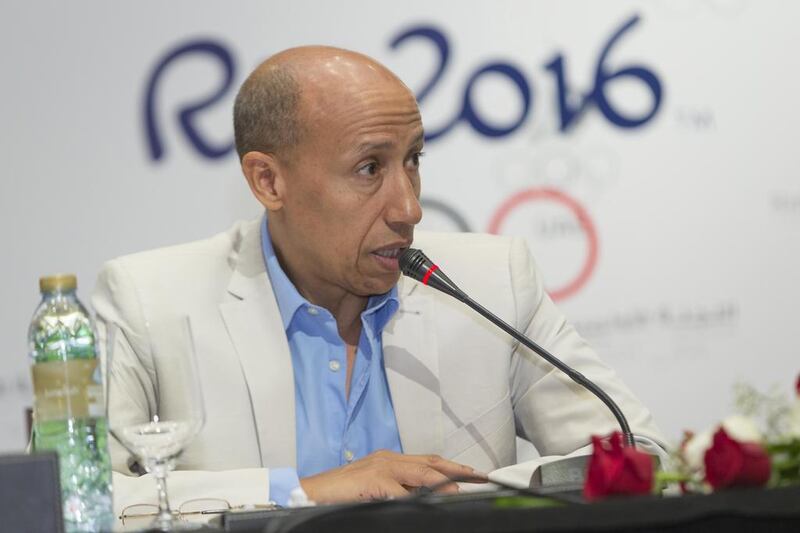DUBAI // Sending dopers to prison is the fastest way to eradicate cheating in international and amateur sport, an official with the UAE National Olympic Committee has said.
Said Aouita, technical director of the committee and former Olympic champion, has been working with the nation’s largest contingent of Olympic athletes yet ahead of next month’s Games in Rio de Janeiro.
“I hope that every athlete competing at Rio is clean, not just those from the UAE,” the Moroccan said.
“I have always supported the idea that if someone cheats, they have committed a crime and must be treated as a criminal. It is not just about the athletes but the image of the country and government institutions.
“So many things can be judged badly if an athlete cheats.”
Aouita, a track and field gold medallist at the 1984 Olympic Games in Los Angeles, insisted that a hard line on drug cheats was the best way to ensure a clean sport.
“If we consider those who cheat as criminals, we would see a big difference and a change in future behaviour,” he said.
“Otherwise, it’s just talk. If someone is found positive, they can get a two-year ban and return to competition. If they are [declared] a criminal and can no longer compete, that is a real deterrent.”
New Zealand, Austria, Italy, France, Sweden, Mexico and China have either criminalised the use of performance-enhancing drugs in sport or criminalised trafficking.
Scientific advancements in sample analysis has prompted a retrospective drug-testing programme by the World Anti-Doping Agency that could catch more cheats.
Russia is facing a partial competition ban in Rio following allegations of a state-sponsored doping programme of athletes at the 2014 Sochi Winter Games.
The World Anti-Doping Code can open a disciplinary proceeding within 10 years from the date an antidoping rule violation occurred, and a further 454 samples are being retested from the 2008 Beijing Olympics.
While backing the move, Aouita wants testers to investigate more historic samples.
“I would like to see samples checked as far back as possible, so we can really see who were the best athletes, and the best champions.”
nwebster@thenational.ae






